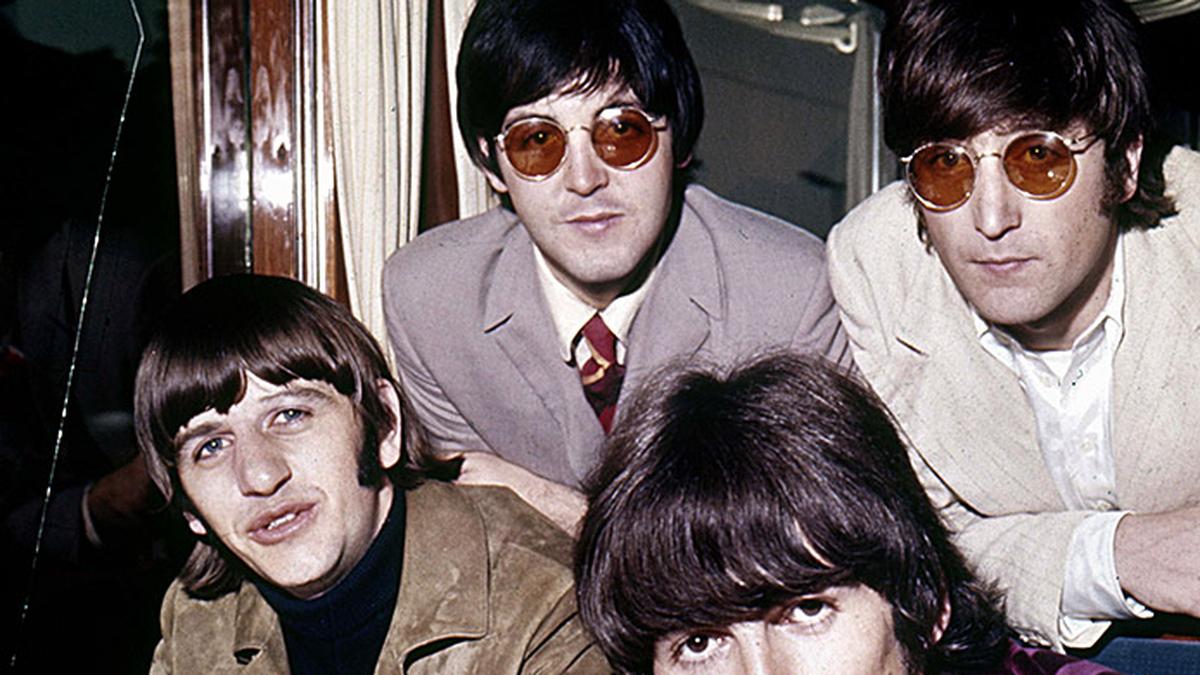
Standing: Paul MacCartney and John Lennon. Seating: Ringo Starr and George Harrison.
| Photo Credit: Getty Images
ABOUT 500 WORDS
The Beatles won a Grammy this year. It is 55 years since the group broke up and 45 years since John Lennon was shot dead. George Harrison died in 2001, and here we are celebrating Now and Then, the Grammy winner.
This is apparently their final final song (30 years ago they had released their final song), unless someone finds one under inside old Lennon mattress and we get a final final final song. The Beatles continue to get by with a little help from their friends. In this case, AI.
Last year a portrait of mathematician Alan Turing fetched 1.8 million dollars. No surprise there except it was the first artwork by a humanoid robot to be sold at an auction.
And now we have Agatha Christie coaching aspiring writers. And who better than the author who has sold two billion copies of her books? Christie who died in 1976, was brought alive by AI for BBC’s online masterclass. “The long arm of coincidence must not be too freely employed,” she says in that slightly plummy voice the English sometimes use to indicate superior class.
Christie’s expert advice is yours for 105 dollars. There are 11 classes in all, in two and a half hours. Isabelle Allende, the Chilean writer happily among us still, gives you 21 lessons over four and a half hours for about 58 dollars.
The dead seem to be having more fun. And making more money too.
What are the ethical issues in raising the dead, thus? Is it morally acceptable to do so? Or is the question irrelevant since that’s where technology is leading us, technology that will get more sophisticated and commonplace?
There is obviously the question of privacy and consent. In human experience, ethical disapproval has seldom stood in the way of technological advancement. Perhaps, as AI models get more self-aware and think on their own, they can provide the answers themselves.
Last year a radio station in Poland aired an interview with writer and Nobel winner Wislawa Szymborska. The fear of technology replacing real people is valid – and so too, apparently, is the fear of it replacing dead people. At the very least, the radio station’s stunt was a breach of journalistic principles.
Every major invention has come with its own ethical issues. The arrival of cars, for instance, raised questions about the safety on roads, the destruction of earlier modes of transport and the societal influence on such ‘progress’. Likewise with the radio and television and the Internet.
Personally, I look on the positive side. It means I need not work hard. Long after I am dead, someone will ensure that I write the book that will win the Nobel Prize. Or finish the painting that will rank alongside the Mona Lisa. Why use my own intelligence when artificial intelligence can do the trick?
If only they could find a way of transferring to me right now the millions I will make in future, I can enjoy the money while still alive.
Published – May 11, 2025 08:57 pm IST
